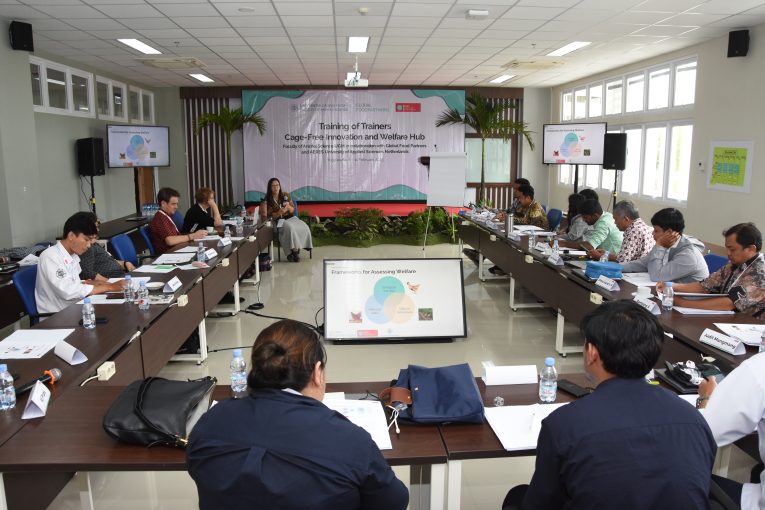
Along with the increasing consumption of eggs due to population growth, causing breeders to find ways to maximize livestock productivity. One of the laying hen farming techniques commonly used so far is the battery-cage farming system where the livestock can move freely in the cage. In addition to this system, there is now a new system that allows poultry to move more freely, namely the cage-free farming system. Cage-free farming system does not use cages, thus allowing livestock to live like in the wild according to their natural habitat. In developed countries, poultry farmers have started to switch to using the cage-free system because it is considered to be pro-animal welfare.
In the Asian region, especially in Indonesia, the cage-free system is still relatively new and has not been widely used by laying poultry farms. In this regard, the Faculty of Animal Science UGM is collaborating with Global Food Partners and AERES University of Applied Science The Netherlands to initiate the development of a cage-free livestock model as well as a training ground for umbaran cage farming called the Cage-free Innovation and Welfare Hub.
Located in Yogyakarta, Indonesia, the Cage-free Innovation and Welfare Hub is the first cage-free system model in ASEAN. This cage-free cage was built to facilitate laying poultry breeders, veterinarians, and students to practice cage-free farming. This facility is open to the public and not only for domestic participants but also from abroad.
On 6 – 11 February 2023, Faculty of Animal Science UGM in collaboration with Global Food Partners and AERES University of Applied Science The Netherlands held a Training of Trainers at the Faculty of Animal Husbandry and Joglo Andini Bawono Lestari (Kalijeruk Cattle Workshop). This training was carried out with the main objective of transferring knowledge from experts who have years of experience in the cage-free livestock industry, both locally and internationally. Followed by Faculty of Animal Science UGM lecturers, Global Food Partners (GFP) consultants, and members of the Cage-free Innovation and Welfare Hub consortium.
In addition to transferring knowledge, this training also aims at increasing the capacity of participants regarding cage-free poultry farming systems. This Cage-free Innovation and Welfare Hub will later become a cage-free laying poultry training center targeted for implementation in May 2023.
In his remarks, the Dean Faculty of Animal Science UGM conveyed the importance of paying attention to animal welfare. “The increasing need for livestock products raises awareness of the welfare of livestock, especially poultry. Livestock whose welfare is guaranteed will produce better products. The hope is that the concept of cage-free poultry welfare with cage free and its application can be disseminated to all levels of society,” said Prof. Budi Guntoro.
Hannah Lum, a representative from Global Food Partners (GFP) in 7 program presentations expressed her joy at the opening of the training center. “We are very excited about the opening of this training center in the next few months. Also this cage-free training center is a great place to practice loft management. Also, it is open to anyone, especially breeders, students, veterinarians, government agencies and other stakeholders,” said Hannah. (Secretariat/Prisil)
